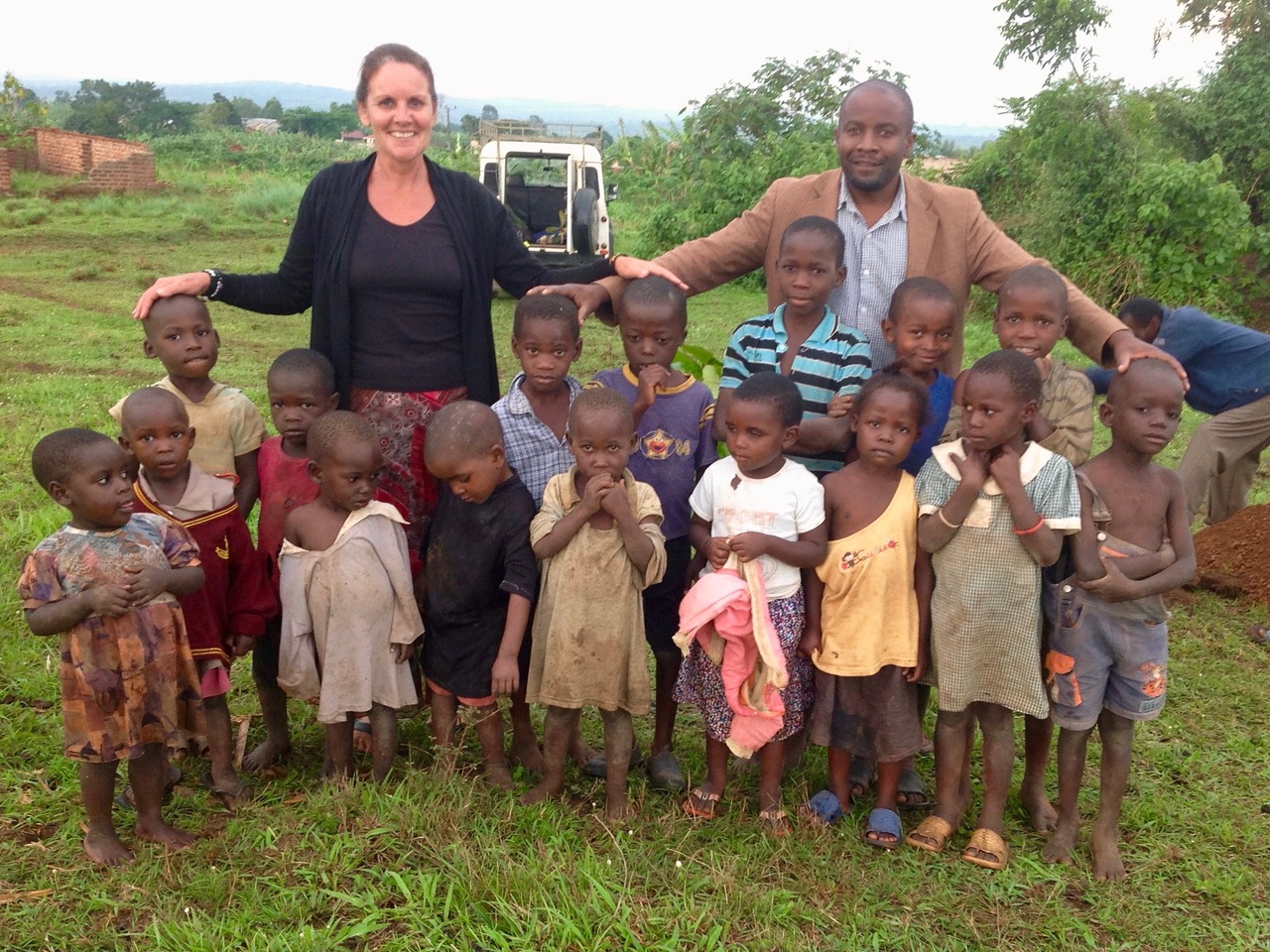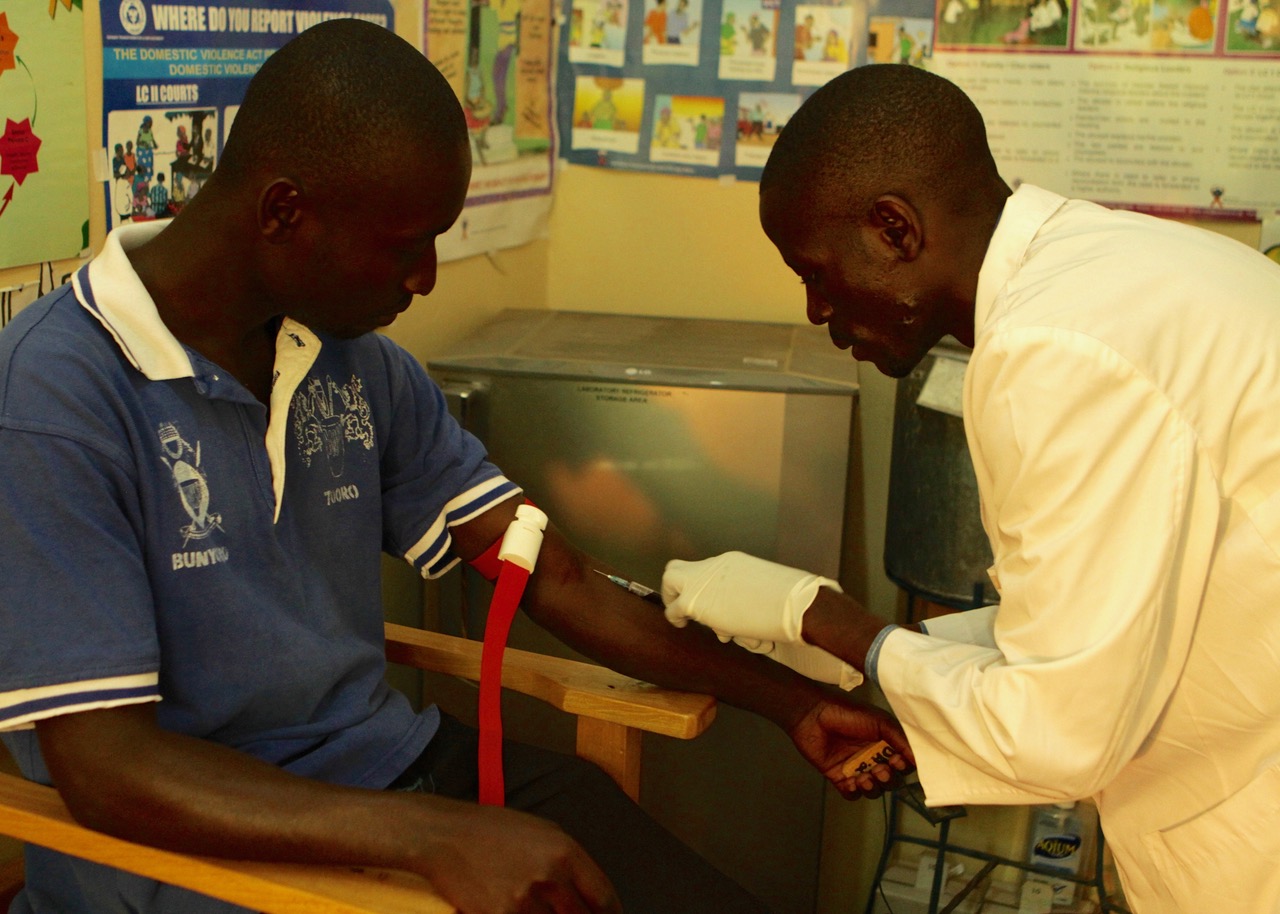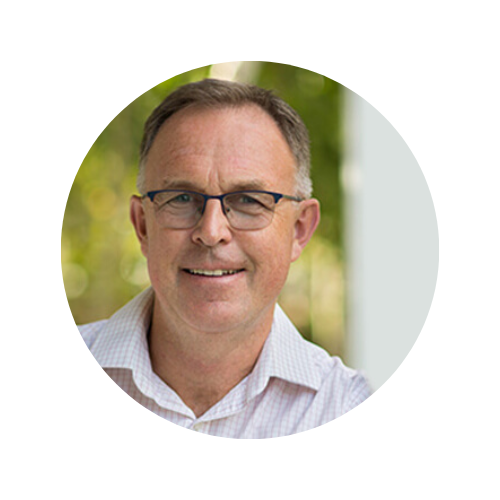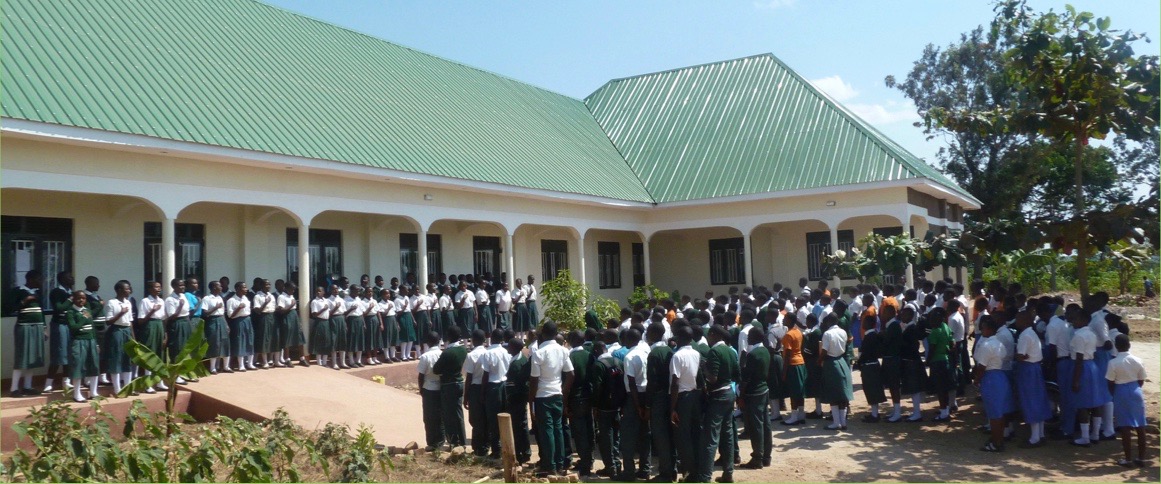Helen:
The remote rural community of Lubanda Village in South-West Uganda, has become my second home. Its people have also become my second family.
My story starts in 2007, when my husband and I decided to take our first international trip to Uganda. We were volunteering for six weeks, and during this time we travelled to the South-West of the country to go gorilla trekking. We also took a slight detour through Lubanda Village. At the time, Lubanda was a remote rural village with no access to medical services or hands-on education. Many of the families in the area had no means of making an income and were surviving off subsistence farming.
For my husband and I, this was already a once in a lifetime adventure. However, little did we know that it would also become a life-changing journey – thanks to a chance meeting with Ssemwogerere David through an Australian connection. We were immediately struck by David’s drive and enthusiasm to make a positive change to his village. He was genuine and compassionate, and introduced us to his village of Lubanda, including to a group of widows and his own mother. He shared with us his dream of setting up a small community centre where locals could meet, share, learn and support each other.

Helen, David and children from Lubanda. Marking out Suubi Secondary School before construction. Some of these children now attend the school. Source: HUG/Suubi
Once back in Australia, Uganda remained constantly on my mind. I was an empty nester with extra time on my hands and plenty of love still to give. At the time I was volunteering with at-risk youth at the Kyabram Community Centre. I contacted David and asked if he had a small project that the kids could work towards. A decision was made to try and raise $220 to start a chicken project for five women in Lubanda village. The project was a success and I quickly learnt that the impact was going to be two-fold. In particular, it was a pleasure to see the Aussie kids not only growing in self-esteem as they sucessfully fundraised, but also deepening their understanding of Uganda. It was an important moment for them, or for all of us, to reflect on complex issues in the world beyond our own door step.
After a second trip to Uganda in 2008, I returned even more inspired. I had absolutely no idea ‘how’ but I decided that it was time to found a not-for-profit organisation so that we could continue to support Lubanda: more impactfully, more effectively and more formally. Thanks to unwavering support from family and friends, and generous technical support from local professionals in our small country community, HUG or Help ‘Us’ Grow was born.
With local needs being identified on-the-ground in Uganda by David, we started to fundraise around the Goulburn Valley. Our aim was to build “Suubi Community Centre” near Lubanda – a centre where local women could learn invaluable tailoring, knitting and craft making skills, discuss their own experiences with business, but also meet with friends and have a good time. At the heart of this project was the philosophy that David and I still share today: that it isn’t about giving hand outs, but rather about creating an opportunity for people to make a better life for themselves. At this stage, it seemed the whole Goulburn Valley was wholeheartedly behind any project we worked towards. However, it was also at this point that we realised that we couldn’t possibly raise the funds required to do it all. We knew that it was time to look for other sources of funding…
Mark:
I was a trustee of Planet Wheeler Foundation in 2011 when Helen Brown came into our lives. Bursting with energy, Helen arrived with wonderful stories about the driven and passionate Ssemwogerere David, and a community in far-away Uganda supported by the rural Aussie town of Kyabram. Undoubtedly, this story was very different from the impact driven approach, or the scale focused approach of our other partners. We prefer to fund locally-led (overseas) organisations – so we would almost never take a visit from a person from an Australian country town. And what’s more, this well-meaning group was way smaller than anyone else we had ever funded.
But if I was to live by just one rule, it would be the famous quote from Margaret Mead: ‘Never doubt that a small group of thoughtful committed citizens can change the world, indeed it’s the only thing that ever has’. As a funder you can say you want impact or evidence or scale – but these only come if you have good people driving the bus.
Helen’s charm, however, was only one reason she was able to both get through the door and then ignite a long-term partnership with us. It was Helen’s drive, ambition, passion and her desire for the community to eventually stand on its own that had my colleagues and I walking out of the meeting already having decided to fund. That said, we realised that the last thing we wanted to do was to completely ‘takeover’ the funding needs of this community – as this would have only served to disenfranchise the second-best outcome of this process: that a rural Australian community had mobilised to support others on the far side of the world. We took on the role of backstopping major fundraisers. If money was needed to build a dormitory, we would offer a dollar-for-dollar match.
There were two things that particularly stood out to me as a funder or philanthropist. First, Helen was deeply wedded to the idea of involving her community. Instead of looking at us as a source of all the capital they needed (a reasonable assumption) her plan was to come to us whenever there was a larger need. Second, I could see the respect and strength of the partnership between Helen and David. They were not bogged down in 200 page Theories of Change. They were passionate. They had purpose. They were working together to make it all happen.
David:
From our initial meeting in 2007, to the exciting news of a first donation in 2008, one of the first things that I noticed about Helen was how she never specified what we had to do with these funds. To have real impact, we both knew that any program or intervention would have to be determined by the community. Continuous and open-minded communication between Helen and I has always allowed us to base our interventions on the grassroots needs: a real bottom up approach. This is one of the core reasons why our projects, funded and facilitated by the Australian HUG and now implemented by Ugandan Suubi, have continued to flourish.
We started out small, such as raising funds for a small chicken farm project that local widows in my community had identified as a potential income source. But since then, we’ve only continued to grow and flourish. One of our first major grants was from the Planet Wheeler Foundation – after HUG worked tirelessly to be granted Australian DGR status. The team at the Planet Wheeler Foundation took a leap of faith and agreed to support the construction of Suubi Community Clinic, which now offers basic but much needed medical services, including one of the first medical labs in the area, pre and post natal care, and immunisation. We’ve also been able to foster further Australian partnerships including a long standing connection to medical students from Monash University (TeamMED) who send a team of volunteers to the clinic every year. Beyond Suubi Community Clinic, one of our proudest achievements has also been the construction of Suubi Secondary School. We currently have 249 students, studying 16 academic subjects. They have the opportunity to participate in vocational studies such as tailoring, knitting, carpentry, building, welding and computer studies, and extracurriculars such as agro-ecology and music.
However, with demand only continuing to rise, we also know that we need to keep looking to the future. For example, fundraising for an additional girls dormitory and a larger dining area at Suubi Secondary School will be our next key objective. We’ve also started to think about how we can ensure the sustainability of our initiatives without entirely depending on external funding, and have started working hard to develop income-producing projects. A great example of this is our agro-ecology program at the school – that not only passes on skills and a nutritional diet to the students, but also sells excess fruit, vegetables and livestock to create an income. In 2015 and 2022 respectively, we also launched our “Elite Backpackers” and “Safaris” to produce a further revenue stream to fund our initiatives. Guests come to stay at the Backpackers from Germany, Netherlands, USA, Australia, France, Chile, Spain and Czech Republic just to name a few. Our safari packages are also designed with a sustainable community tourism component, so many of the guests choose to volunteer after their wildlife or primate safaris.

Suubi Medical Clinic
Helen, Mark and David:
Looking back over the past seventeen years, we can’t believe what we have achieved. Our final takeaways are:
1) The HUG/Suubi partnership has thrived for so long because we have always embraced flexibility and learning along the way. Helen often uses the analogy from when her boys were learning how to ride bikes. The boys were able to experiment and learn, supported by training wheels. Helen would also always be there to catch their fall – just in case. Suubi and HUG’s relationship has followed this same philosophy. We’ve also always focused on the positive achievements, and purposeful implementation moving forward. We have a few phrases that have kept us going: “Everything happens for a reason” and “We go with the flow”.
2) Those on-the-ground, or local leaders, are always better placed than external actors to determine how a program should run. In fact, this works both ways! We have learnt that Helen knows best how to fundraise in Australia. And David knows how to implement programs and identify community needs in Uganda. Respectful and collaborative partnerships can be so powerful.
3) Ordinary people can help to make an extraordinary difference – when teamed with the right people on-the-ground and when supported by open-minded philanthropists.
———————–
‘HUG – Help Us Grow’ is an Australian-based not-for-profit organisation that has been working to implement and support sustainable community projects in the beautiful rural villages of Uganda in East Africa since 2008. Through ongoing partnerships with local communities they have been able to establish grassroots educational, health and agricultural-based initiatives which continue to empower Ugandan people to make a sustainable difference in their own lives. HUG also focuses on creating real connections and meaningful partnerships between participants from the programs in Uganda and inspired schools, families, businesses and individuals in Australia. The relationships that are being formed through these connections ensure that HUG’s projects truly do Help Us (all) Grow.

Helen Brown is the founder of HUG – Help Us grow. Helen grew up in the small country town of Kyabram, in northern Victoria. Helen and her husband raised their four sons there, whilst running a small business in town. Whilst they are now officially retired on the Sunshine Coast, with eight amazing grandchildren, Helen is still happily fundraising to support all the wonderful things being achieved by Suubi Centre in Uganda. Her life’s journey is focused on spreading kindness, happiness and helping to bring positive change to the world.

Ssemwogerere David, Suubi Director, was born and raised from Lubanda Village. He is one the first people from that area to have an opportunity to gain a University degree. David holds a Master of Arts Degree in Rural Development and a Bachelor’s Degree in development studies, from Makerere University, Kampala. David has been widely involved in local, national and international Environment and Development programs. He is currently a Tour operator in Eastern Africa and is passionate about sustainable community tourism and rural development.

Mark Cubit has been active in the International giving space since 2005. In that time, foundations he has managed have funded over 200 NGOs in 38 countries. Mark’s current responsibilities are with Partners For Equity, Cubit Family Foundation, Ripple Foundation, Planet Wheeler Foundation, Crap Foundation and he is Chair of The School of St Jude. Mark Cubit is also the Co-Founder and Director of AIDN. Prior to his involvement in the philanthropic community, Mark was Managing Director, Australian Equities at Merrill Lynch Equities for 15 years.
Feature image: School assembly at Suubi Secondary School. Source: HUG/Suubi.
